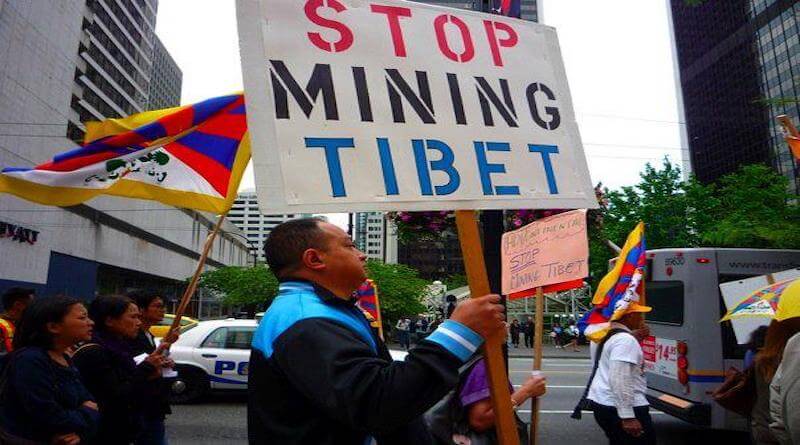China’s second-largest mining company to acquire lithium mine in Tibet for $741 million

DHARAMSALA 5 May: Zijin Mining Group the Second largest mining company in China is set to acquire an asset bundle consisting of four assets in Tibet, including a 70% interest in the Lakkor Tso Salt Lake lithium mine.
Kitco, one of the world’s largest online retailers and full-service providers of precious metals in the world has confirmed that Zijin Mining Group agreed to acquire the lithium mine in Tibet for $741.
“The total consideration of the target assets under the transaction is RMB7,682,124,435 (~ $1.2 billion), of which RMB4,897,332,050 (~$741 million) will be paid for 100% equity interest in Jinshi Mining, which holds a 70% interest in the Lakkor Tso Salt Lake lithium mine,” Kitco reported citing the Zijin Mining Group.
The Chinese mining company has said in the report that “at the end of 2012, the Lakkor Tso Salt Lake had retained resources of 2.14 million tonnes of lithium carbonate (as lithium is contained in the lake water, its resources can be considered as reserves), with an average lithium-ion concentration of 270mg/L.”
The Chinese mining company which is the 7th largest mining company in the world has stated in the report that “after the completion of the acquisition, it will decide the specific development plan according to salt lake development policies in Tibet.”
Additionally, the Chinese firm that engages in the exploration, mining and smelting processing of gold, copper, zinc, and other metal mineral resources has agreed to make a phased investment to acquire a 19.9% stake in Xanadu Mines, a Mongolian copper and gold exploration company in last week.
Lithium is largely used to make batteries, where lithium is used as electrode and electrolyte material in both disposable batteries and rechargeable batteries for mobile phones, laptops, digital cameras and electric vehicles.
According to some estimates, nearly 80 per cent of the raw lithium used in China is imported.
Lithium-ion batteries power electric vehicles and China dominates the global electric vehicle market. In 2021, China accounted for 53% of global sales.
Activists and exiled Tibetans have long campaigned against China’s exploitation of Tibet’s natural resources which they say has gathered pace significantly.
Tempa Gyaltsen Zamlha, Head of Environment & Development Desk of Tibet Policy Institute(TPI), the CTA’s research centre said during the launch of the ‘COP 25 Climate Action for Tibet: The Earth’s Third Pole’, in 2919 that “Tibet has witnessed an increase in natural disasters since 2016 which he credited to climate change and China’s rampant and ill-advised mining and construction activities in Tibet in recent years.”
China’s thirst for minerals resources and its desire to exploit the rich deposits under the Tibetan plateau has led to numerous protests by the Tibetans who consider the hills and lakes sacred as they believe them to be the abode of gods who have protected the community and the land from time immemorial.
However, Chinese authorities have reacted to these protests by beating, arresting and also firing live ammunition at Tibetan protesters and the mining resulting in the spread of environmental pollution and anguish for local Tibetans whose ancestors lived here for thousands of years.






